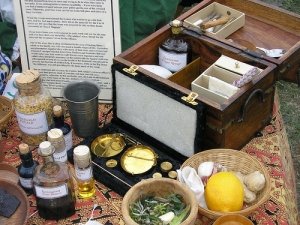
More and more parents are turning to herbal remedies or botanicals to address the many illnesses and discomforts that plague their children during the early years. With recalls on pharmaceutical drugs on the increase, more studies showing the ineffectiveness of over-the-counter drugs, and long lists of side effects, how can anyone blame them?
The World Health Organization estimates that 65-80% of the world’s population relies primarily on herbal medicines due to traditional use, effectiveness, availability and cost. In fact, herbal remedies are widely studied by pharmaceutical companies to create their drugs. An example of this is Digoxin, a drug used for heart failure, which is isolated from the foxglove plant. Another example is contraceptive pills synthesized from wild yams. Over 500 herbs are used in pharmaceuticals, however they are no longer in their natural state with only the main constituents being used and synthesised allowing for dosage control, higher levels of effectiveness, faster response in the body and most importantly drug patents. Isolating and/or synthesising botanicals leaves behind valuable synergistic effects of other constituents. These other constituents make herbs much gentler on the body as well as negating or reducing the severity of side effects from the main medicinal constituents. Our bodies have adapted over thousands of years to process botanicals, now we are asking them to process medicines that are no longer in their natural state. Think of the stress this is causing on your little one’s growing and developing body.
While pharmaceutical medicines do have an important role in our society, especially in acute states where fast results are needed (antibiotics when not abused save lives), we are now using these same potent and high-risk medicines in situations where the risk outweighs the benefits and where the fast results may not be necessary or even beneficial. We should be using effective, traditional and scientifically proven plants to gently rebalance and support our body to do what it can do naturally: heal itself.
We have one group of people who no longer view herbal medicine as effective or even medicinal and we have another group who are quickly turning back to herbs due to the abuse and overuse of pharmaceuticals with their long list of side effects. Those who are turning back to traditional medicine, however, are doing so with the same notions and ideas of how pharmaceuticals work, thinking about symptoms and labels and not individual requirements, looking for fast acting pills that make them numb and completely symptom free, and ignoring the reason behind the symptoms. Many people drop into health food stores and grab the most popular herb on the shelf just as they would with an over-the-counter medicine not realizing that herbal medicine is a very intricate science and an art.
In part two of this series I would like to address the intricacies of the science and art of herbalism.
Dana Clark, CNHP, CHC, CHN, CLE
Hi! I am a robot. I just upvoted you! I found similar content that readers might be interested in:
http://www.fromtherootsholistic.ca/articles--videos/herbal-remedies-and-children-part-1-of-5
LOL silly robot that is the same article but on my website...
@cheetah , please note several links on the website www.fromtherootsholistic.ca connecting to my steemit account proving I am the same individual. No copy infringement just me posting on both platforms.